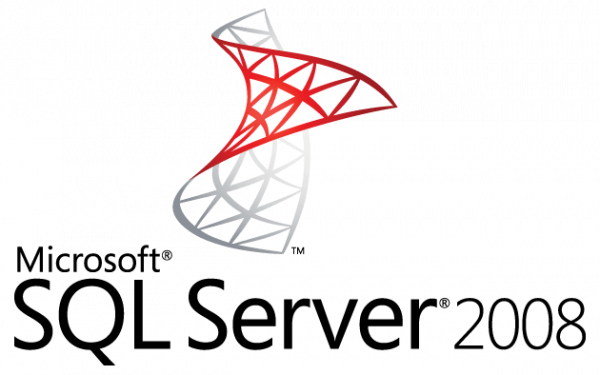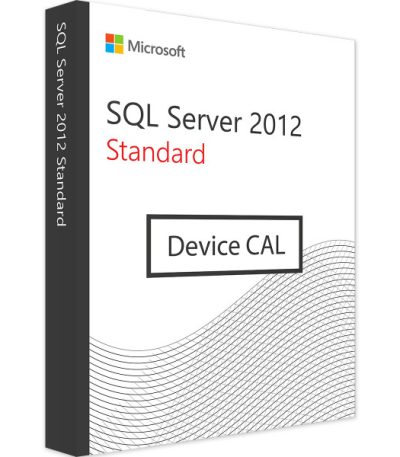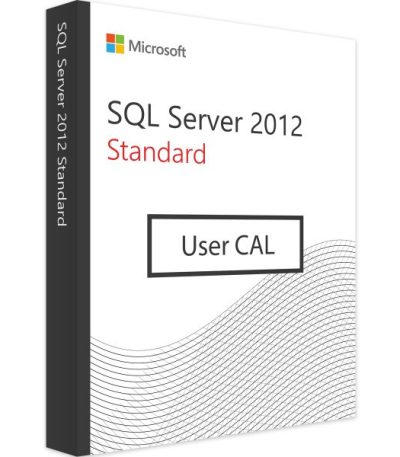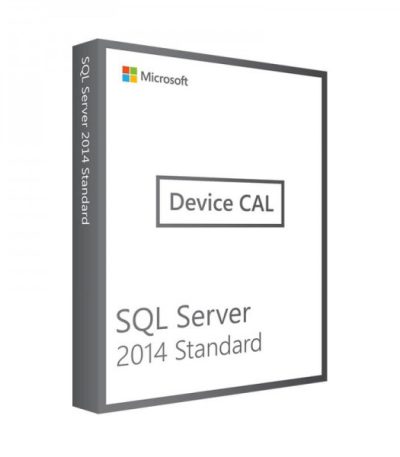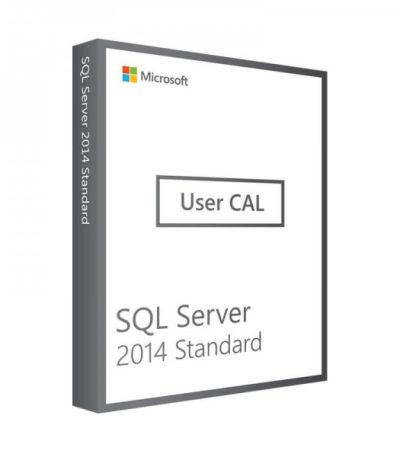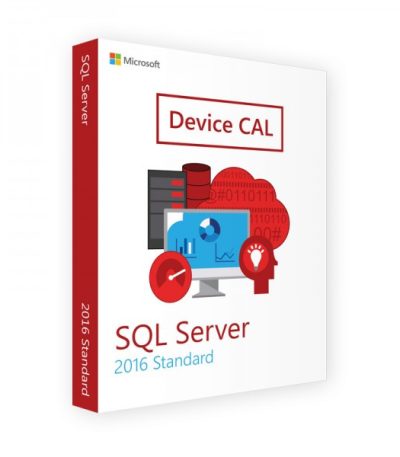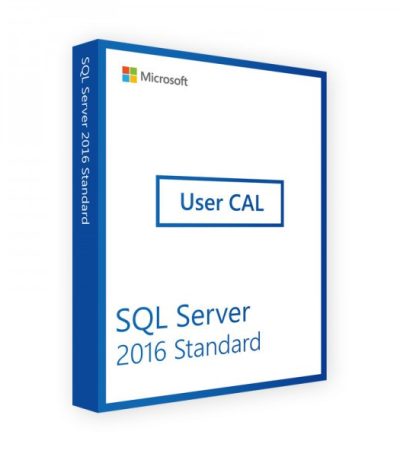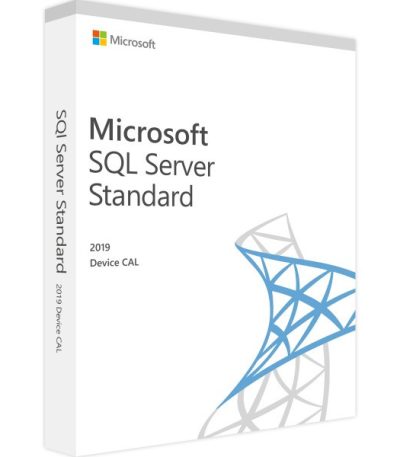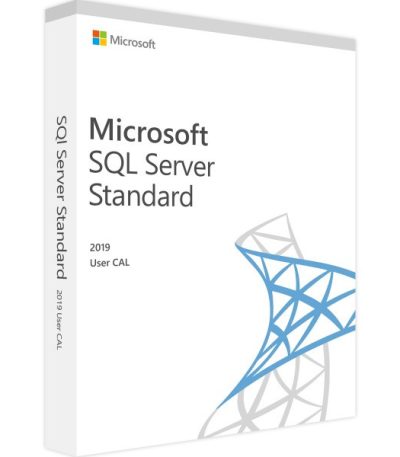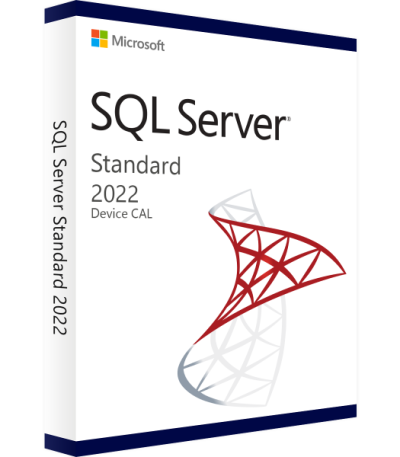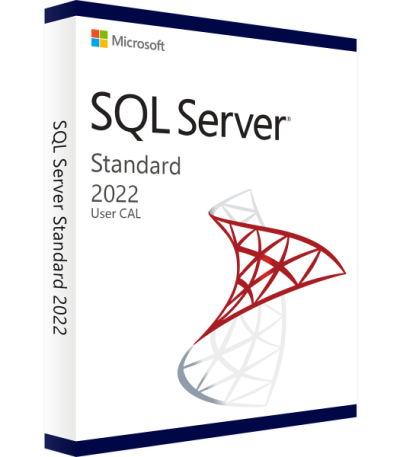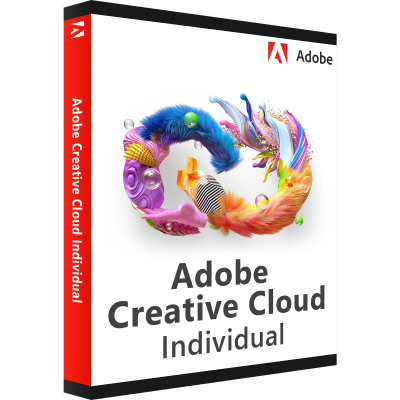Filter by price
Product Status
Showing all 12 results
Microsoft SQL Server 2008 Standard Device CAL
- Devices: 1 device + 2 VMs
- Duration: Permanently valid
- Language: All languages
- country zone: Worldwide
- Shipping method: e-mail
- Manufacturer: Microsoft
Microsoft SQL Server 2008 Standard User CAL
- Devices: 1 device + 2 VMs
- Duration: Permanently valid
- Language: All languages
- country zone: Worldwide
- Shipping method: e-mail
- Manufacturer: Microsoft
Microsoft SQL Server 2012 Device CAL
- Devices: 1 device + 2 VMs
- Duration: Permanently valid
- Language: All languages
- country zone: Worldwide
- Shipping method: e-mail
- Manufacturer: Microsoft
Microsoft SQL Server 2012 User CAL
- Devices: 1 device + 2 VMs
- Duration: Permanently valid
- Language: All languages
- country zone: Worldwide
- Shipping method: e-mail
- Manufacturer: Microsoft
Microsoft SQL Server 2014 Device CAL
- Devices: 1 device + 2 VMs
- Duration: Permanently valid
- Language: All languages
- country zone: Worldwide
- Shipping method: e-mail
- Manufacturer: Microsoft
Microsoft SQL Server 2014 User CAL
- Devices: 1 device + 2 VMs
- Duration: Permanently valid
- Language: All languages
- country zone: Worldwide
- Shipping method: e-mail
- Manufacturer: Microsoft
Microsoft SQL Server 2016 Device CAL
- Devices: 1 device + 2 VMs
- Duration: Permanently valid
- Language: All languages
- country zone: Worldwide
- Shipping method: e-mail
- Manufacturer: Microsoft
Microsoft SQL Server 2016 User CAL
- Devices: 1 device + 2 VMs
- Duration: Permanently valid
- Language: All languages
- country zone: Worldwide
- Shipping method: e-mail
- Manufacturer: Microsoft
Microsoft SQL Server 2019 Device CAL
- Devices: 1 device + 2 VMs
- Duration: Permanently valid
- Language: All languages
- country zone: Worldwide
- Shipping method: e-mail
- Manufacturer: Microsoft
Microsoft SQL Server 2019 User CAL
- Devices: 1 device + 2 VMs
- Duration: Permanently valid
- Language: All languages
- country zone: Worldwide
- Shipping method: e-mail
- Manufacturer: Microsoft
Microsoft SQL Server 2022 Device CAL
- Devices: 1 device + 2 VMs
- Duration: Permanently valid
- Language: All languages
- country zone: Worldwide
- Shipping method: e-mail
- Manufacturer: Microsoft
Microsoft SQL Server 2022 User CAL
- Devices: 1 device + 2 VMs
- Duration: Permanently valid
- Language: All languages
- country zone: Worldwide
- Shipping method: e-mail
- Manufacturer: Microsoft
SQL Server CALs: Strategic Planning and Licensing Optimization
Effective database management is essential for operational efficiency and growth in today’s data-driven business environment. Microsoft SQL Server remains one of the most powerful and reliable database platforms on the market, helping organizations confidently manage, secure, and retrieve mission-critical data.
Understanding client access licenses (CALs) is key to using SQL Server legally and efficiently. This comprehensive guide will explain SQL Server CALs, the types available, version-specific features, system requirements, installation steps, and tips for choosing the right CAL licensing model for your business.
What Are SQL Server CALs and How Do They Work?
An SQL Server Client Access License (CAL) grants a user or a device the right to access the SQL Server. Microsoft requires these licenses to connect to the database services legally.
There are two primary types of CALs:
- User CALs – Licensed per individual user, regardless of how many devices they use.
- Device CALs are licensed per device, irrespective of how many users access them.
User CALs vs. Device CALs: Which Is Right for Your Business?
Choosing between User CALs and Device CALs depends on your company’s workflow and usage patterns:
- User CALs are ideal for companies with employees who access the server from multiple devices (e.g., laptop, tablet, phone).
- Device CALs work best in environments where multiple users share a single workstation, such as in shift-based work settings.
Understanding your organization’s access needs is crucial for making a cost-effective and scalable licensing decision.
SQL Server CAL Versions: Features and Upgrades Over Time
Each version of Microsoft SQL Server introduces new features and enhancements. Here’s a quick overview of the key CAL versions and what they offer:
- SQL Server 2008 CAL – Enhanced scalability and security. A significant milestone for enterprise-grade performance.
- SQL Server 2012 CAL – Introduced AlwaysOn Availability Groups and columnstore indexes for high availability and better query performance.
- SQL Server 2014 CAL – Focused on in-memory OLTP and advanced security controls.
- SQL Server 2016 CAL – Brought JSON support, improved AlwaysOn features, and enhanced reporting services.
- SQL Server 2017 CAL – Expanded platform compatibility with support for Linux, plus performance and security upgrades.
- SQL Server 2019 CAL – Added Big Data Clusters and AI integration for deeper analytics and data intelligence.
- SQL Server 2022 CAL – The latest version, designed for hybrid cloud integration, with advanced performance, scalability, and security enhancements.
Installation and System Requirements for SQL Server CALs
Before deploying SQL Server CALs, ensure your infrastructure meets Microsoft’s minimum system requirements:
- Hardware Requirements: CPU, memory (RAM), and storage capacity that align with SQL Server’s specifications.
- Software Requirements: A compatible Windows operating system version and relevant service packs or dependencies.
Proper installation ensures performance, security, and compliance with Microsoft licensing policies.

